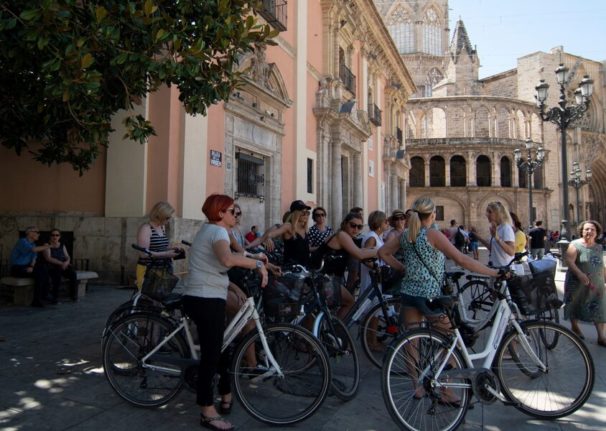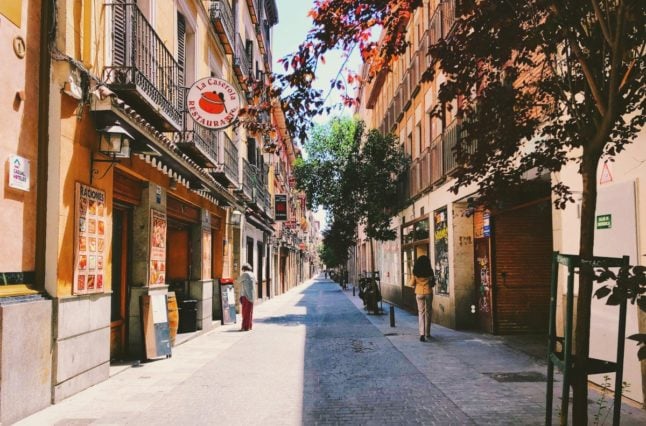Valencia council and the city’s Association of Official Tourist Guides have signed an agreement to limit tourist groups to 25 people throughout the city and 20 in the ‘Ciutat Vella’ (old town) area of the city centre.
Tourism has increased markedly in the Mediterranean city in recent years. In the city centre, it is not uncommon to see groups of sixty or more tourists arrive together on a coach and move around the city in one group.
“We are committed to the consolidation of a sustainable tourism model, guaranteeing the profitability of businesses, improving employment figures, but always preserving the value of our natural and cultural resources and our Mediterranean lifestyle,” the city’s Councillor for Tourism, Innovation and Investment, Paula Llobet, said at the presentation of the agreement.
READ ALSO: Nine things you should never say to a Valencian person
In addition to capping tourist group numbers, the agreement also aims to ensure that tour guides working in the city can coordinate their routes and itineraries to avoid overlapping with another in the same places so that visitors can enjoy their tours without inconveniencing locals.
They will also choose the most suitable places around town to make stops and do their explanations, and find alternative routes to allow a smooth flow of visitors, locals, and traffic.
READ ALSO: Where in Spain to locals ‘hate’ tourists?
Tourists on guided tours will use individual headset systems to avoid excessive noise in keeping with a municipal noise ordinance prohibiting the use of megaphones and microphones.
In addition, the council will demand that guides working in Valencia have the necessary qualifications recognised by the Generalitat so that only accredited tour guides can work in the city.
The council will also monitor flows of people in the city through the deployment of sensors to record visitor levels at tourist attractions and provide guides with the data they need to optimise their routes and avoid crowds.
“This agreement seems to us a very useful tool because it focuses on the commitment to balanced development, the preservation of heritage and the quality of life of locals,” said Llobet.
Llobet also stressed that tourist guides are “the best ambassadors to ensure that visitors respect the rules, such as not sitting down to eat on the stairs of protected buildings.” The city council also hopes that tour guides can encourage local hospitality and promote sustainability.
The city council will also, through coordination with local police, try to prevent intrusiveness on daily life in the city through inspections.
READ ALSO: Barcelona to hand out €3,000 fines to tour guides with groups of more than 15



 Please whitelist us to continue reading.
Please whitelist us to continue reading.
Member comments